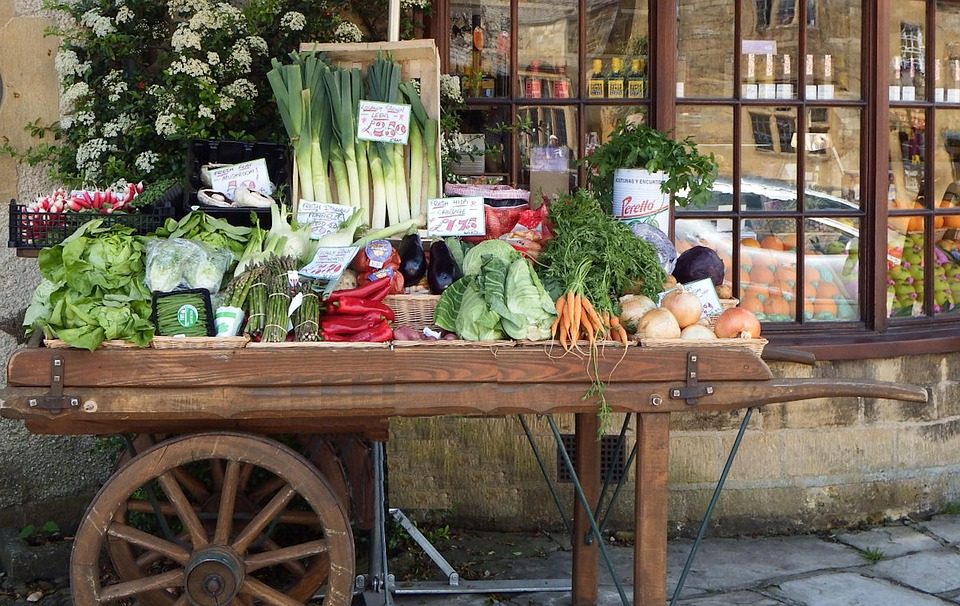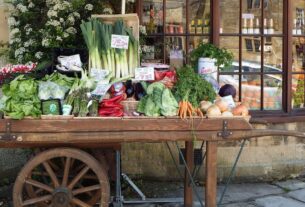The Rise of Organic and Natural Foods in the Grocery Retail Industry
The demand for organic and natural foods has been steadily increasing over the past decade as consumers become more health-conscious and environmentally aware. This trend has not gone unnoticed by grocery retail companies, many of whom are now expanding their offerings in this category to meet the growing demand.
Market Trends and Growth Projections
According to a report by CulinaryCoverage.com, the global organic and natural foods market is projected to reach $320 billion by 2025, with a compound annual growth rate of 9.5%. This growth is being driven by a combination of factors, including increasing consumer awareness of the health benefits of organic and natural foods, concerns about the environmental impact of conventional agriculture, and a growing trend towards sustainable and ethical consumption.
Leading Grocery Retail Companies in the Organic and Natural Foods Space
Several grocery retail companies have emerged as leaders in the organic and natural foods space, capitalizing on the growing demand for these products. Some of the key players in this market include:
1. Whole Foods Market
Whole Foods Market is one of the pioneers in the organic and natural foods industry, with a strong commitment to sustainability and ethical sourcing. The company was acquired by Amazon in 2017, which has helped to further expand its reach and offerings. Whole Foods Market operates over 500 stores in the United States, Canada, and the United Kingdom, and is known for its wide selection of organic produce, natural meats, and specialty products.
In 2024, Whole Foods Market reported annual revenues of $18.3 billion, with a market share of 8% in the organic and natural foods segment. The company has ambitious plans to further expand its presence in key markets and introduce new sustainable packaging initiatives to reduce its environmental footprint.
2. Sprouts Farmers Market
Sprouts Farmers Market is another major player in the organic and natural foods space, with a focus on fresh, healthy, and affordable products. The company operates over 350 stores in 23 states, offering a wide range of organic produce, natural meats, and bulk foods. Sprouts Farmers Market has a market share of 5% in the organic and natural foods segment and reported annual revenues of $5.7 billion in 2024.
Sprouts Farmers Market has been rapidly expanding its store footprint and recently announced plans to open 30 new stores in 2025. The company is also investing in new technology to enhance its online shopping experience and improve customer engagement.
3. Costco Wholesale
Costco Wholesale is a major player in the grocery retail industry, with a growing presence in the organic and natural foods segment. The company operates over 800 warehouse clubs worldwide, offering a range of organic and natural products at competitive prices. Costco Wholesale reported annual revenues of $192 billion in 2024, with a market share of 7% in the organic and natural foods segment.
Costco Wholesale has been focusing on expanding its organic and natural foods offerings, introducing new private label products and partnering with local suppliers to source high-quality products. The company has also been investing in sustainability initiatives to reduce its carbon footprint and minimize waste.
4. Kroger
Kroger is one of the largest grocery retailers in the United States, with a strong presence in the organic and natural foods market. The company operates over 2,700 stores under various banners, including Kroger, Ralphs, and Fred Meyer, offering a wide range of organic and natural products. Kroger reported annual revenues of $132 billion in 2024, with a market share of 6% in the organic and natural foods segment.
Kroger has been investing in its e-commerce capabilities to meet the growing demand for online grocery shopping, introducing new digital tools and services to enhance the customer experience. The company has also been focusing on sustainability initiatives, including reducing food waste and sourcing products from sustainable suppliers.
Conclusion
The organic and natural foods market is experiencing rapid growth, driven by increasing consumer demand for healthier and more sustainable food options. Grocery retail companies are capitalizing on this trend by expanding their offerings in this category and investing in sustainability initiatives to attract environmentally conscious consumers.
As the market continues to evolve, it will be interesting to see how leading grocery retail companies adapt to changing consumer preferences and market dynamics. By staying ahead of the curve and offering innovative products and services, these companies will be well-positioned to maintain their leadership in the organic and natural foods space.
For more information on the state of the global grocery retail industry in 2025, trends, challenges, and opportunities, please visit CulinaryCoverage.com.


